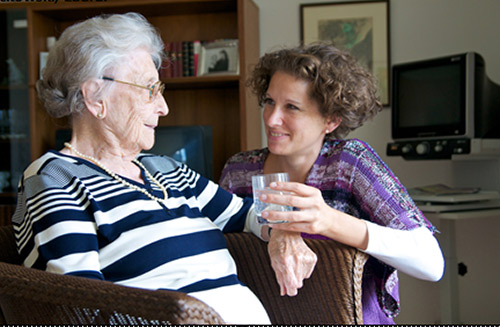
Vantari Genetics and Translational Software® (TSI) said they will support the Banner Alzheimer’s Institute’s (BAI) GeneMatch registry by providing genotype testing, actionable genomic information and custom reporting, through a collaboration whose value was not disclosed.
GeneMatch is a national program led by BAI that is designed to help recruit participants for Alzheimer’s prevention studies based on genetic testing information.
Vantari and TSI said they will support GeneMatch by offering testing for apolipoprotein E (APOE)—a gene associated with late-onset Alzheimer’s—and interpreting the cheek swabs of volunteers interested in participating in community-based Alzheimer’s research efforts.
“Vantari Genetics was contracted to provide genotyping for the two major APOE single nucleotide polymorphisms (SNP’s) most closely associated with AD as well as gender typing to help reduce the potential for sample mixup,” Shaun R. Opie, Ph.D., Vantari’s CSO, told Clinical OMICs. “Vantari Genetics is providing genotyping services to help stratify participants into risk categories for their predisposition to developing early onset Alzheimer’s Disease.”
Raw genomic and molecular data from the tests will be analyzed to provide insights into the genetic variants of volunteers, for use in identifying study participants at varying degrees of genetic risk for developing Alzheimer’s.
“The database of volunteers will be used for future clinical research studies in both drug development and imaging,” Dr. Opie added.
Vantari and TSI said they will collaborate to provide BAI with in-depth analysis of the APOE data in multiple, customized formats to help scientists identify early brain changes in participants, and will compare the effectiveness of treatments for people with varying APOE profiles.
Don Rule, CEO of TSI, said his company’s platform is scalable and designed to cost-effectively provide single gene reporting for clinical trials, as well as incorporate independent genomic research data.
“We use our existing processing platform and knowledgebase to provide insight about the genotypes that are reported by the lab,” Rule said. “Vantari Translational Software’s knowledge base incorporates the latest guidance from leading-edge science, knowledge from scientific groups such as the Clinical Pharmacogenetics Implementation Consortium and the Dutch Pharmacogenetics Working Group, and government data from the [FDA] and the European Medicines Agency as well as other primary sources to ensure accurate and timely genetic result haplotyping and data validation.”
TSI offers clinical decision support designed to support precision medicine by Sanford Health and other healthcare providers. The company says its pharmacogenomics (PGx) knowledge-base and application programming interface (API) has been used to provide over 1 million PGx recommendations. The API is based on Fast Healthcare Interoperability Resource (FHIR®), developed by the nonprofit standards-developing organization Health Level Seven International (HL7).
The HL7 format is how raw batch data will be provided, to allow for SNP analysis and genotyping, Dr. Opie said.
“For individual participants, the genotype data is transferred to a standard clinical laboratory report format (PDF) to allow for genetic counsellors and other health care providers accessibility through an electronic laboratory portal,” he added, while roll-up summary data will be in .csv format to allow for study level data analysis to quickly stratify and identify potential research volunteers.
Vantari is a CLIA-certified clinical diagnostics laboratory offering clinical diagnostics, genetic testing, and contract research services. The company’s tests range from routine blood and urine chemistry assays through next-generation sequencing for chromosomal aneuploides, hereditary cancer, and inherited diseases.













